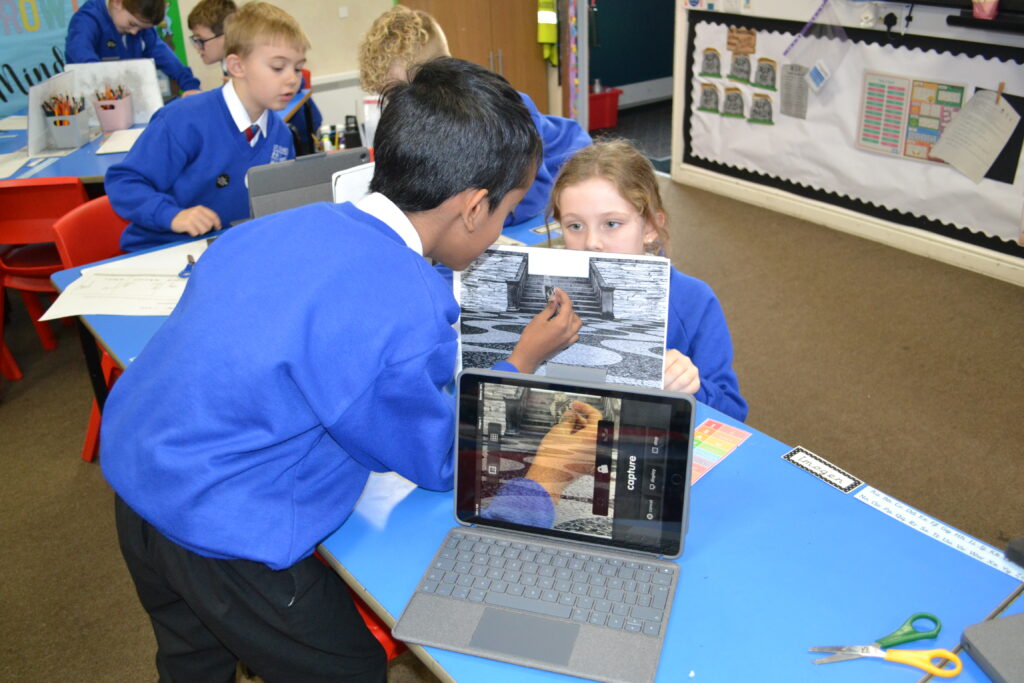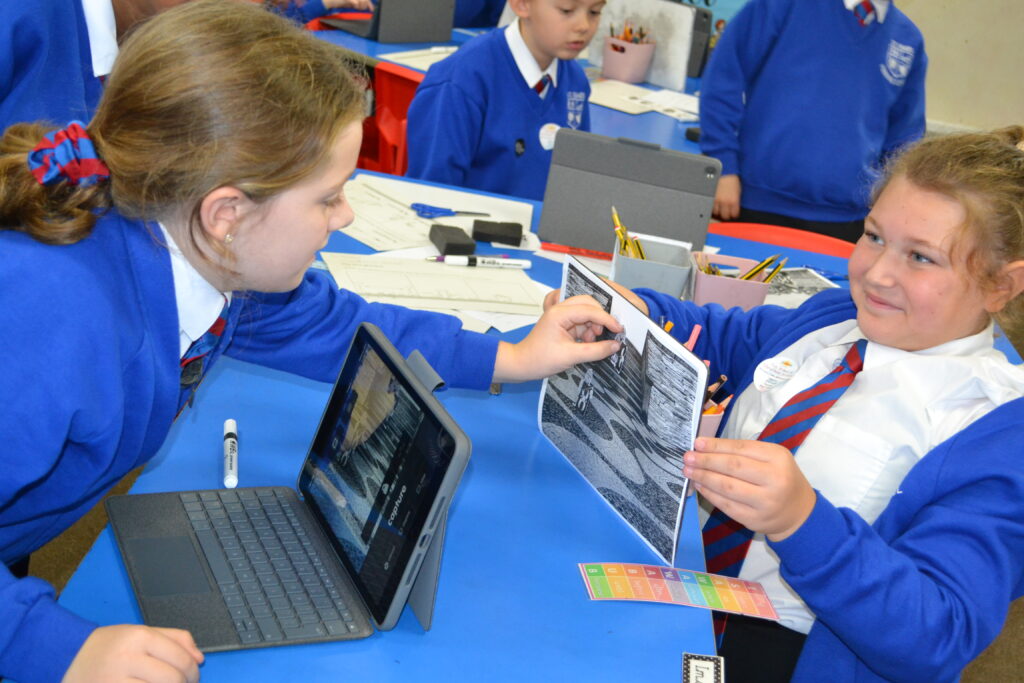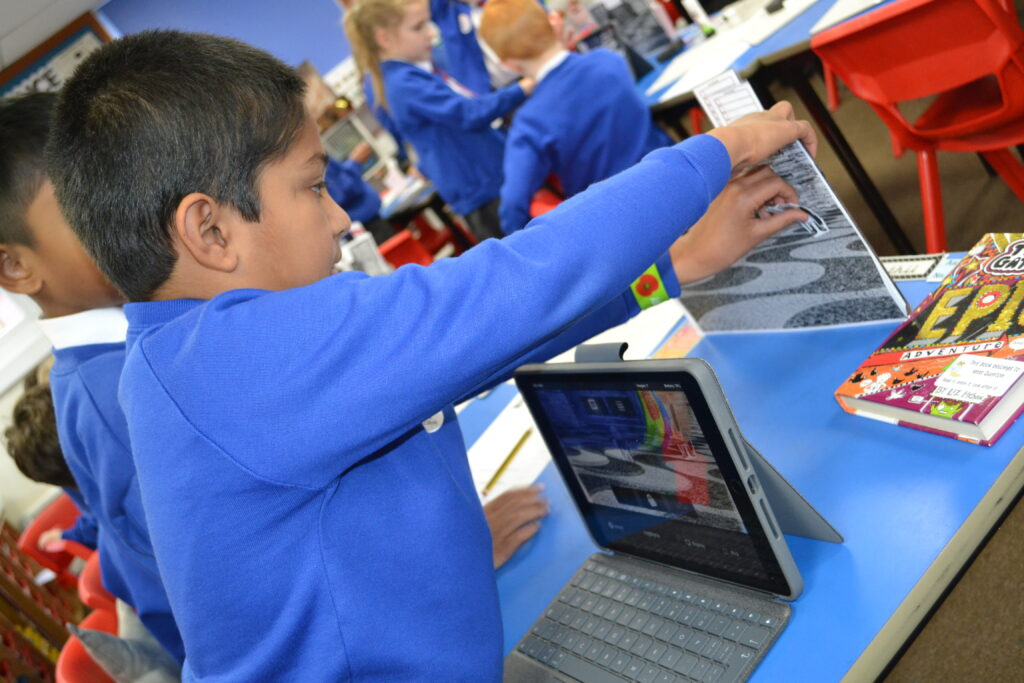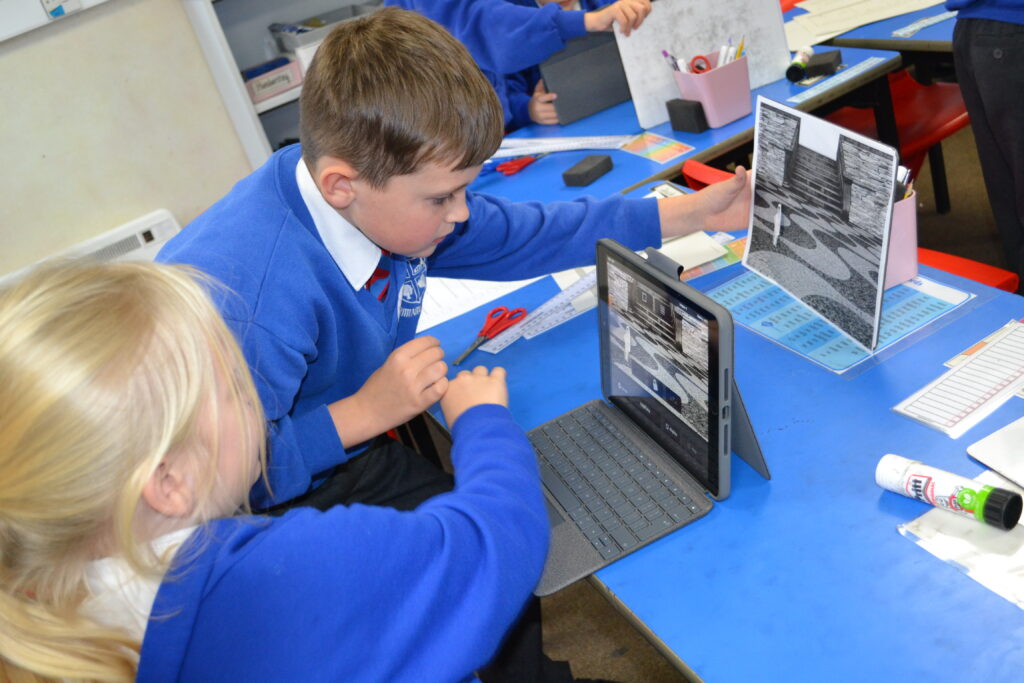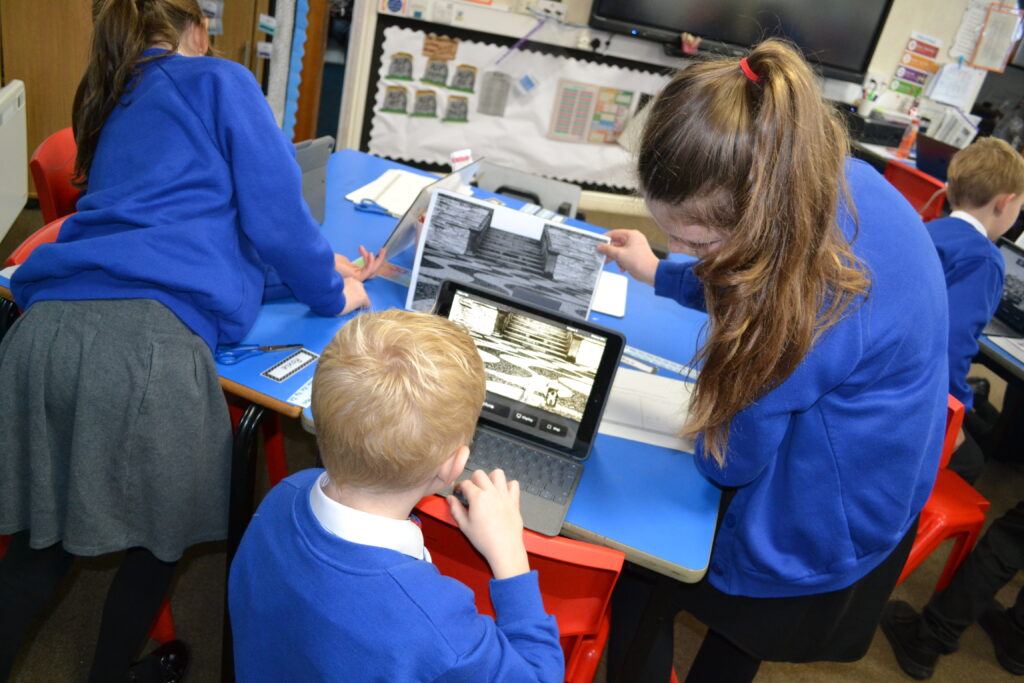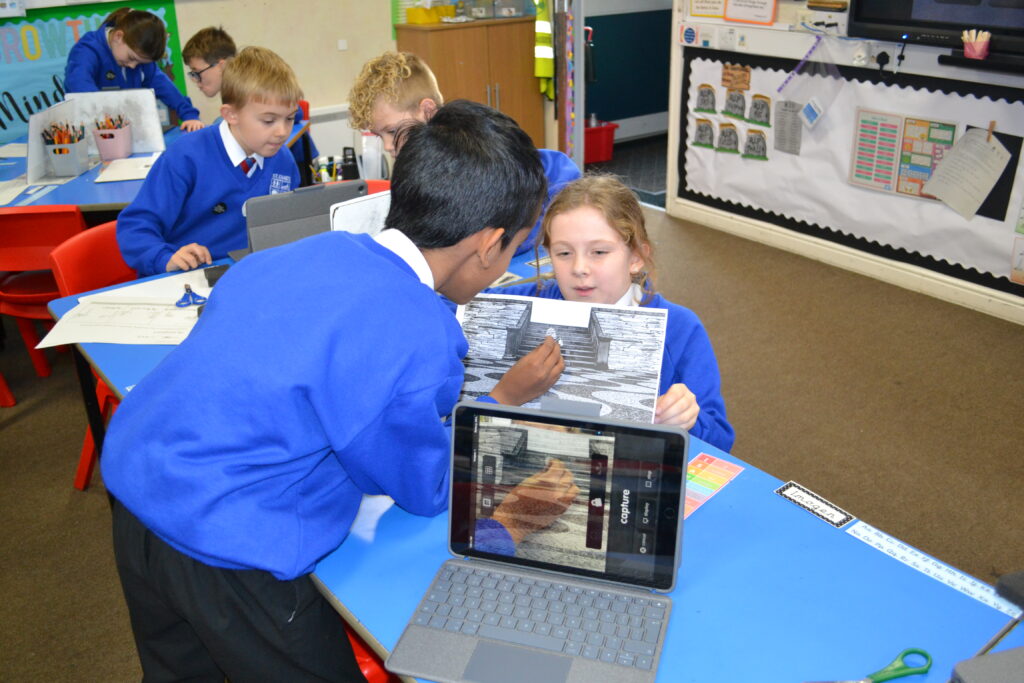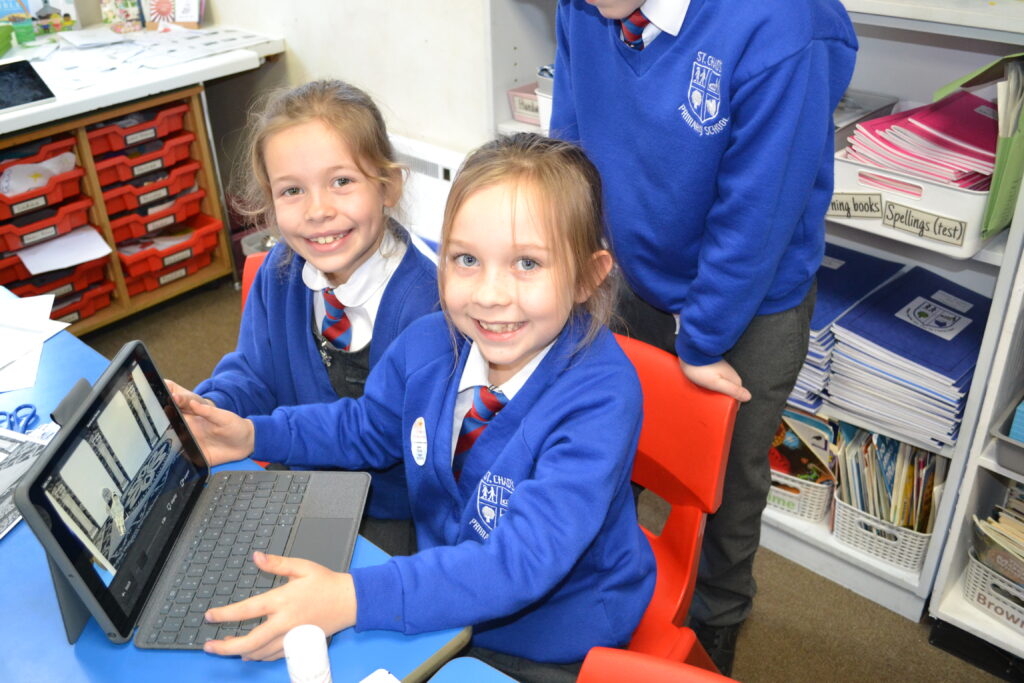Computing
Intent
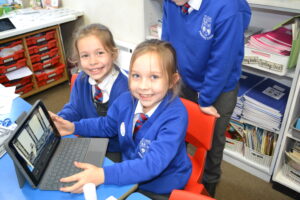 At St Chad’s, we believe that a comprehensive education in computing is essential, and will enable our children to develop the creative, technological and computational thinking skills that will allow them to be active participants in a world that is becoming increasingly more digital. We know that children are accessing technology at ever younger ages, and so we believe that it is our responsibility to ensure that every child in our school begins their computing education from their very first day. We want our children to understand technology, not just use it, and so our aim is to provide a curriculum which embeds a deep understanding of all three of the core strands of computing (information technology, digital literacy, and computer science). We endeavour to provide our pupils with the dedicated time necessary to achieve mastery in these subjects, deepen their knowledge, and become responsible digital citizens. Our fully inclusive computing curriculum follows the ‘no child left behind’ ethos and we are fully committed to ensuring that children keep up, not catch up.
At St Chad’s, we believe that a comprehensive education in computing is essential, and will enable our children to develop the creative, technological and computational thinking skills that will allow them to be active participants in a world that is becoming increasingly more digital. We know that children are accessing technology at ever younger ages, and so we believe that it is our responsibility to ensure that every child in our school begins their computing education from their very first day. We want our children to understand technology, not just use it, and so our aim is to provide a curriculum which embeds a deep understanding of all three of the core strands of computing (information technology, digital literacy, and computer science). We endeavour to provide our pupils with the dedicated time necessary to achieve mastery in these subjects, deepen their knowledge, and become responsible digital citizens. Our fully inclusive computing curriculum follows the ‘no child left behind’ ethos and we are fully committed to ensuring that children keep up, not catch up.
Computing covers a broad and diverse set of skills, which are implemented throughout the curriculum, across different subjects and in all year groups. In the Early Years department, children complete activities that develop their computational thinking skills every day, from creating and recognising patterns, to learning to give and follow instructions, and to solve simple every-day problems, such as buttoning a coat. All of these essential life skills help young children to develop abilities which will be essential to their future computing education. Lesson plans developed from the Barefoot Computing scheme, in line with the Early Years Statutory Framework, provide opportunities for these skills to be introduced and refined.
From KS1 upwards, we use the Teach Computing Curriculum, a scheme developed by the National Centre for Computing Education, which has been created by computing experts based on the latest pedagogical research. The Teach Computing curriculum has been tailored specifically for our school to ensure progression across our two-year cycle, and covers all National Curriculum requirements.
Within this scheme, children are given the opportunity to receive an inclusive and ambitious computing education, which covers ten key strands of computing:
- Algorithms — Be able to comprehend, design, create, and evaluate algorithms
- Computer networks — Understand how networks can be used to retrieve and share information, and how they come with associated risks
- Computer systems — Understand what a computer is, and how its constituent parts function together as a whole
- Creating media — Select and create a range of media including text, images, sounds, and video
- Data and information — Understand how data is stored, organised, and used to represent real-world artefacts and scenarios
- Design and development — Understand the activities involved in planning, creating, and evaluating computing artefacts
- Effective use of tools — Use software tools to support computing work
- Impact of technology — Understand how individuals, systems, and society as a whole interact with computer systems
- Programming — Create software to allow computers to solve problems
- Safety and security — Understand risks when using technology
Children in Y56 will also complete units on physical computing, where they will use technology such as micro:bit computers and crumble controllers to learn to physically program in a tangible and concrete way.
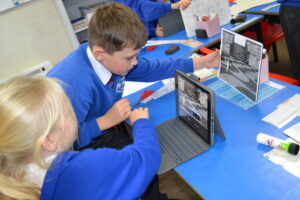 We hope that through their computing education as St Chad’s, our pupils will develop an enthusiasm and love for the subject. Progress in computing will be assessed by the outcomes
We hope that through their computing education as St Chad’s, our pupils will develop an enthusiasm and love for the subject. Progress in computing will be assessed by the outcomes
the children produce, as well as the teacher assessments documented throughout each unit of work. Our children will leave our school with the tools necessary to be respectful, responsible and confident users of technology. They will be able to ask questions, solve problems and be creators, not just consumers. As they further their education and eventually enter their working lives, we hope that the education they receive at St Chad’s has a lasting impact, preparing them adequately for the challenges and successes they will experience.
E-Safety
We know that technology will play a central role in many aspects of our children’s lives, and that this will only increase in years to come; therefore, we feel that it is our responsibility to ensure that our children are able to learn, work and socialise using technology in ways that are safe and healthy. Children are now more aware of and competent in using technology than ever before, so we believe that our e-safety curriculum must cover topics which are relevant to what our children are actually doing online, and also be able to be adapted as needed to remain applicable in an ever-changing online sphere.
Our e-safety scheme is produced by National Online Safety, an award-winning body whose mission statement is to make the internet a safer place for children. Each year, our children will participate in dedicated e-safety lessons which will cover all of the eight ‘building blocks’ of e-safety, as taken from the Education for a Connected World government framework:
- Self-Image and Identity
- Online Relationships
- Online Reputation
- Online Bullying
- Managing Online Information
- Health, Wellbeing and Lifestyle
- Privacy and Security
- Copyright and Ownership
These lessons cover subjects that will help our pupils to think critically, ask questions and evaluate what they see online. As well as teaching them how to use computers responsibly and securely, there are also lessons which teach them how to spot fake news, how to tell if someone is really who they say they are online, and the effects that screen time can have on their physical and mental health. Each year, these lesson plans are updated by NOS to ensure that they remain relevant, and reflect the best teaching and learning practices.
We believe that by taking the time to deliver a comprehensive e-safety curriculum to our pupils, we will be enabling them to enter the wider world with the awareness, critical thinking skills and resilience necessary to thrive while using technology.
Class Activities Gallery:
